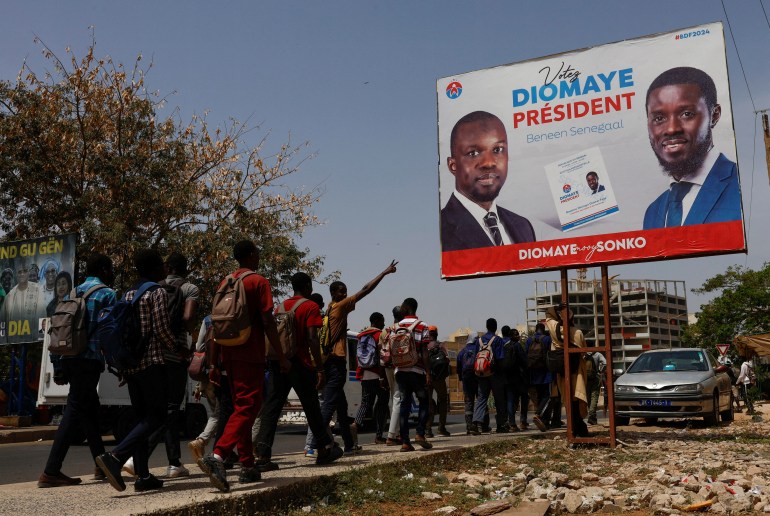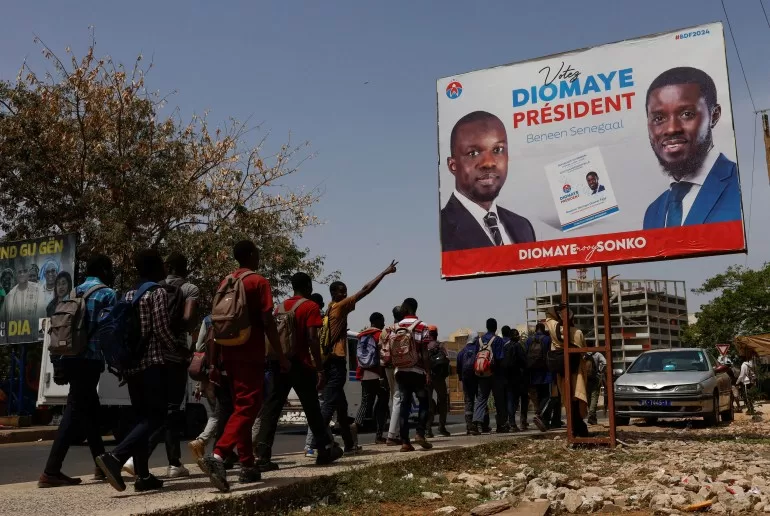Senegal’s youngest president appoints ally and popular opposition figure Ousmane Sonko as prime minister.
Senegal’s new president has appointed firebrand politician and key backer Ousmane Sonko as prime minister in his first act as the West African nation’s leader.
Bassirou Diomaye Faye made the announcement shortly after he was sworn into office on Tuesday, pledging systemic change after years of deadly turmoil under his predecessor, Macky Sall, a political opponent of Sonko.
Speaking after his appointment, Sonko said he would present Faye with a full list of proposed ministerial appointments for his approval.
“There will be no question of leaving him (Faye) alone to assume this heavy responsibility”, Sonko said.
Faye took the presidential oath in front of hundreds of officials and several African heads of state at an exhibition centre in the new town of Diamniadio, near the capital, Dakar.
Faye, 44, has never previously held elected office. He swept to a first-round victory on a promise of radical reform just 10 days after being released from prison.
Lena Sene, an economist based in Dakar, told Al Jazeera that Faye faces a “very difficult” challenge as president.
“You cannot change an entire administration in one day. He understands that he has to put systems in place in order to fight corruption. He is ready for that,” she said.
Sonko, 49, was at the centre of a two-year standoff with the state that triggered bouts of deadly unrest.Popular among Senegal’s youth, he was disqualified from running in the March 24 presidential race due to a defamation conviction, and picked Faye as his replacement on the presidential ballot. He denied any wrongdoing.
Campaigning jointly under the slogan “Diomaye is Sonko,” Sonko urged supporters to vote for his top lieutenant, Faye, who ultimately won with more than 54 percent of the vote in the first round.
Economic challenges
Faye, a former tax inspector, is Senegal’s fifth president since independence from France in 1960.
Acknowledging the country’s desire for “systemic change”, he pledged to strengthen the country’s democracy and establish an independent judiciary.
Working with his populist mentor, Faye now faces the challenge of carrying out national reconciliation, while easing the cost-of-living crisis, fighting corruption and appearing as someone not subservient to Sonko.
He has also promised to restore national sovereignty over key assets such as the oil, gas and fishing sectors.
The new government also needs to create enough jobs in a nation where 75 percent of the 18 million population is aged under 35, and the unemployment rate is officially 20 percent.

